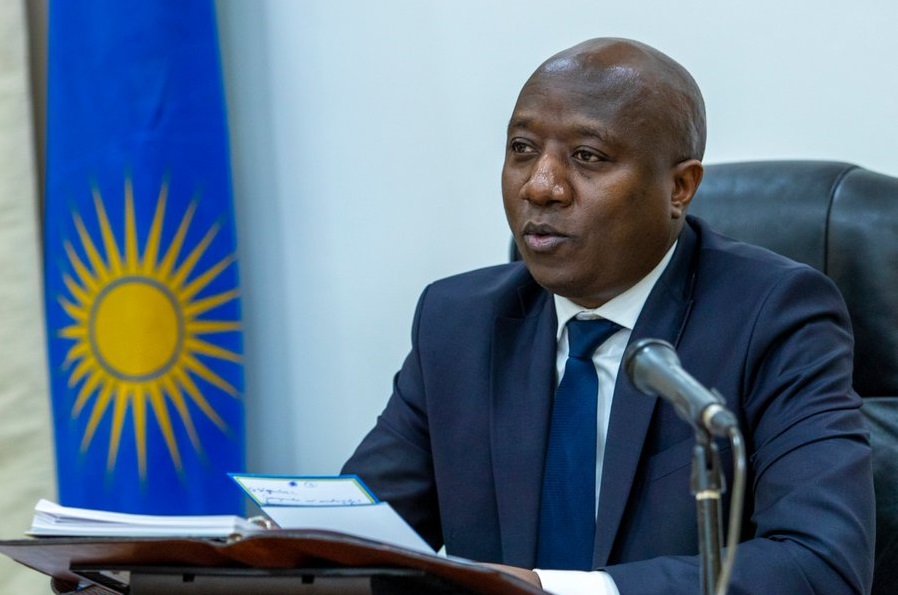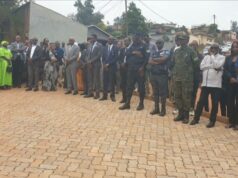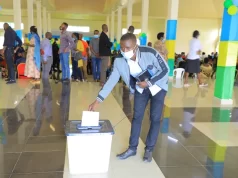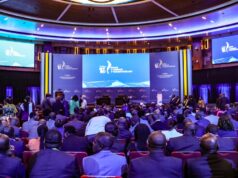
The Government of Rwanda last year launched The Economic Recovery Fund (ERF) ,the fund was established to support the recovery of businesses hit hardest by COVID19 so that they can survive, resume operations and safeguard employment, thereby cushioning the economic effects of the pandemic.
The fund which National Bank of Rwanda was appointed as the Fund Manager was initially launched with Rwf 100 billion and is to be expanded to Rwf 350 billion by the end of 2021.
The Government setup steering committee to govern the fund, this was aimed at ensuring that funds are used appropriately to achieve the expected results.
“The Economic Recovery Fund Technical Steering Committee will govern the fund. It will review the performance of the Fund on a monthly basis and report to the Economic Recovery Fund High Level Steering Committee of Ministers, National Bank of Rwanda(BNR) Governor and CEOs (RDB and PSF),” read the statement released to announce the launch.
The technical steering committee is composed of the Ministry of Finance and Economic Planning, Ministry of Trade and Industry, Rwanda Development Board, National Bank of Rwanda, Private Sector Federation, Rwanda Bankers’ Association, Association of Microfinance Institutions of Rwanda and Business Development Fund.
Apart from supporting businesses in the sectors hit hardest by the pandemic so they can survive, resume work/production and safeguard employment, the fund was to expand domestic production of essential goods during the COVID-19 and post-COVID-19 period these included medical equipment like masks, gloves, sanitizers, disinfectants, and others that may be deemed necessary during this period.
Addressing both chambers of Parliament on two major Government of Rwanda initiatives to mitigate the economic impact COVID-19 in march this year Prime Minister Dr. Edouard Ngirente said, the incentives under the Manufacture and Build to Recover Program consist mainly of tax exemption on imported construction materials not available in the East African Community, as well as on construction materials sourced domestically, and reduction of tax credits on export revenues.
“All businesses highly impacted by the restrictions put in place to prevent the spread of the virus, or exposed to consumer discretionary spending, and those with global supply chains that have been disrupted, are eligible to apply for the support provided by the Economic Recovery Fund.” Dr Ngirente told Parliament.
“The Manufacture and Build to Recover Program aims to fast track private sector investments in manufacturing and construction. It will play a big role in reducing the cost of setting up industries of key essential products as well facilitating the expansion of small and medium industries,” he added.
Sectors targeted by the ERF include but are not limited to tourism, manufacturing including agri-processing, transport and logistics and SMEs linked to domestic and global supply chains.
Construction materials incentives are applicable to a minimum investment of $10 million. Factory construction incentives are applied for a project whose investment is not less than $1 million of construction value for companies opening a subsidiary in Rwanda, and not less than $ 1 million or 20% of total investment when an entity purchases or leases an existing facility to begin new production in Rwanda.
Sectors eligible for this National Recovery Fund support include;
All businesses highly impacted by the restrictions put in place to prevent the spread of the virus, and exposed to consumer discretionary spending, and those with global supply chains that have been disrupted. These include but are not limited to Tourism, Manufacturing including Agri-processing, Transport and Logistics and SMEs linked to domestic and global supply chains.
Micro and Small Enterprises (MSEs)/Informal sector: COVID-19 fiscal and monetary responses in place don’t reach the informal economy while the strain on incomes resulting from the lockdown and decline in activities/consumption will devastate informal workers (and their families) close to the poverty line.
To protect those businesses or jobs and stimulate consumption of households, the Fund will create a window to support Micro and Small enterprises(MSEs) via Microfinance Institutions (MFIs) and provide credit guarantee through BDF.
What you need to access the national recovery fund
This window is available to customers who demonstrated a negative impact on their operations caused by the COVID19 pandemic, proven by at least 30% year-on-year (2019 Vs 2020 on moving period) losses based on VAT Turnovers submitted to the RRA.
Borrowers who are not VAT registered/are VAT exempted will not be assessed using VAT declarations since they are not bound by monthly declaration of their sales to RRA.
Banks and MFIs are advised to assess them using financial statements or company performance, instead.
Borrowers shall represent RRA Tax clearance certificate as at end Feb 2020 or installment contract/to whom it may concern from RRA, as evidence of good tax standing prior to COVID-19.
Informal micro businesses should present payment of local taxes “Ipatanti” as proof of good tax standing. Existing facilities/loans for any borrower, should have been performing as at end Feb 2020 i e class 1 or 2.













